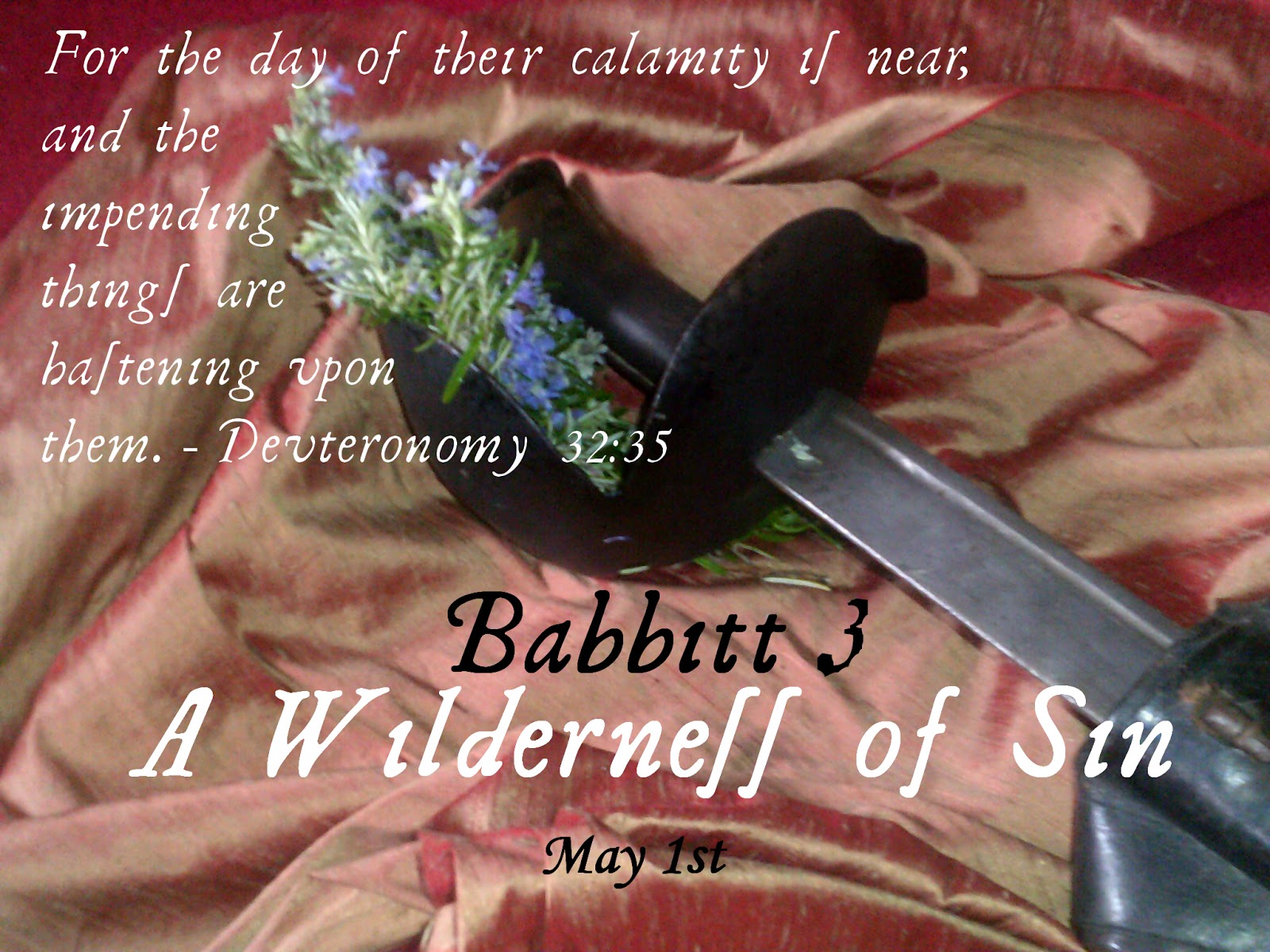I should like you to imagine, gentle reader, a soft, late April dusk. The darkening sky is a lightless violet, and in the apple tree at the end of the little walled kitchen-garden a blackbird is singing as if the heavens are falling.
So far, so the view from Het Babbitt's parlour window. (Give or take the smoke-blue cat stalking through the long grass with an eye to the blackbird. Mathurin, regrettably, is a very real cat with a very real habit of slaughtering the wildlife.)
Imagine the smell of woodsmoke on the air. Imagine, if you can, that faint tang of incense that means that someone's burning apple logs. The sweet, thin, heady slightly-almond fragrance of the last wallflowers, in a blaze of brick red and yellow against the garden wall. The smell of clean air, and damp earth.
I like to think I write three-dimensional fiction. It's a matter of record that Hollie Babbitt is a ragged at the edges, slightly over six foot, underfed-looking individual with a prominent nose and rather too much reddy-brown hair. I know what he looks like. (Remarkably fine eyes. An aside. Het quite agrees.) but that's not really enough. If you're to think of my Rosie as a real, thinking, feeling, breathing man who was alive in 1642 - more than a vehicle to drive a plot along - then there's got to be more.
Try a little experiment for me. Close your eyes, and put your face to the crook of your elbow. What can you smell? What does it feel like? You smell of soap, in all probability - soap, or washing powder. Hollie - and even the fastidious Russell - would smell of neither. Depending if he was at home, in which case Mistress B would have him changing his personal linen with zealous regularity and his shirt would likely smell of lavender, or of the sweet sachets with which she'd be hoping to
And, yes, let's not lie about it, Hollie is going to smell a little bit of sweaty male, because he's a guy in 1640s England who probably has a strip-wash first thing in the morning with cold water and that's him done for the day, thank you, till bedtime, no matter how hard he happens to be working during the day.
- Nat Rackhay of blessed memory was a man for oil of civet as a substitute for soap and water, and he did smell like a cheap bordello.
(Russell, if you're curious, is almost obsessive about changing his linen - but then you may have come across his sister in the books. Cleanliness being next to godliness, which is it's a hard habit to break. So. Anyway. Russell smells of something like lye-soap, and sunshine. Luce? Clean, uncomplicated, slightly sweaty healthy young man, who will occasionally dab a bit of rosewater behind his ears on special occasions but feels very degenerate when he does it.)
Smell is a much underrated trigger to imagination, I find. Rackhay's horrible greasy musk fragrance as a substitute for washing - tells you all you need to know about Nat Rackhay, doesn't it? Poseur. Fur coat, as his best mate might grumpily put it, and no drawers. Somewhat vain, and very lazy.
Luce's mother's house at Witham, that smells of baking bread and pot-pourri and beeswax and faintly of river-damp - is a home, where a family live.
The smell of the back room of a charity shop is one of the most forlorn odours in the world: of old dreams, and cast-off hope, and airlessness. A stifled, hopeless smell.
The belly fur of a sunbathing cat, on the other hand, smells of sunlight.
I used to sniff my late fiance's hair sometimes, when he came in from work. "What do I smell of?" he'd say. and, "Thoughts," I'd tell him.
The smell of frying onions and cheap sausages is eau de fairground.
Woodsmoke is the smell of camping, to me - woodsmoke and wet canvas and black powder, but then I am a re-enactor.
Someone used to say to me that my old leather jacket smelt of cheese on toast and patchouli oil - which actually, I deny, most fervently, but she reckoned it smelt of me.
Smells trigger memories. I can't smell Je Reviens without thinking of the inside of my mum's handbag, and how when I was little that was the most fascinating and exotic place I could imagine, full of grown-up secrets and surprises. Roasting lamb smells of Sundays, when my nan used to roast a joint in her freestanding gas cooker.
Anyone can describe an appearance. But if you go that bit further - what does it smell like? taste like? - you're tapping into something richer, and more memorable, and more real.
Immerse yourself in what you're writing about. Live in it, cook with it, wash in it. And then revel in it.




